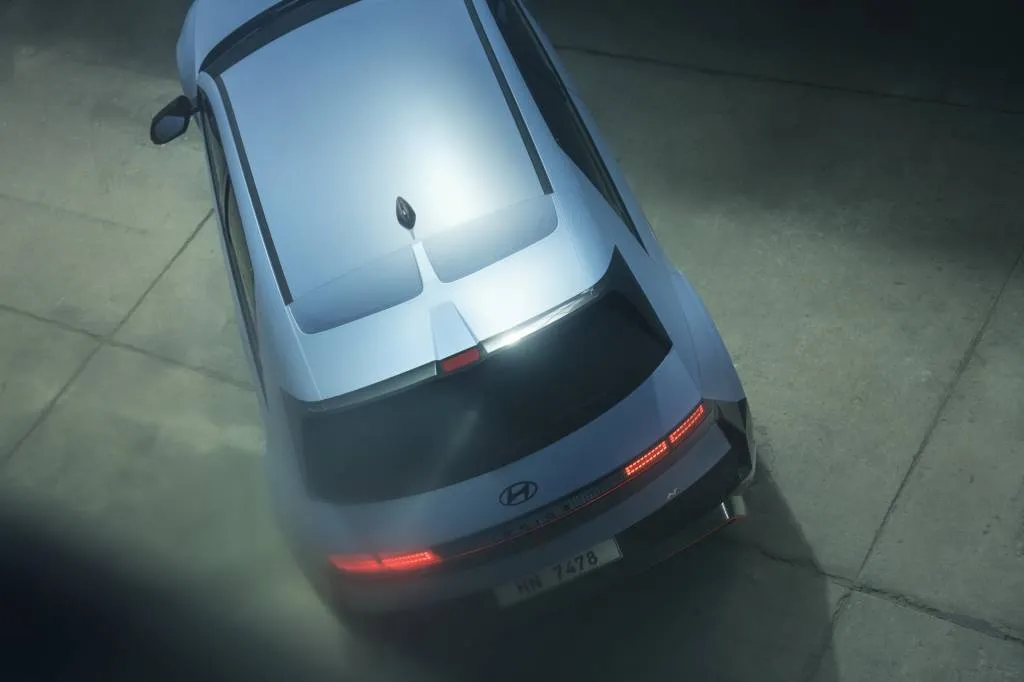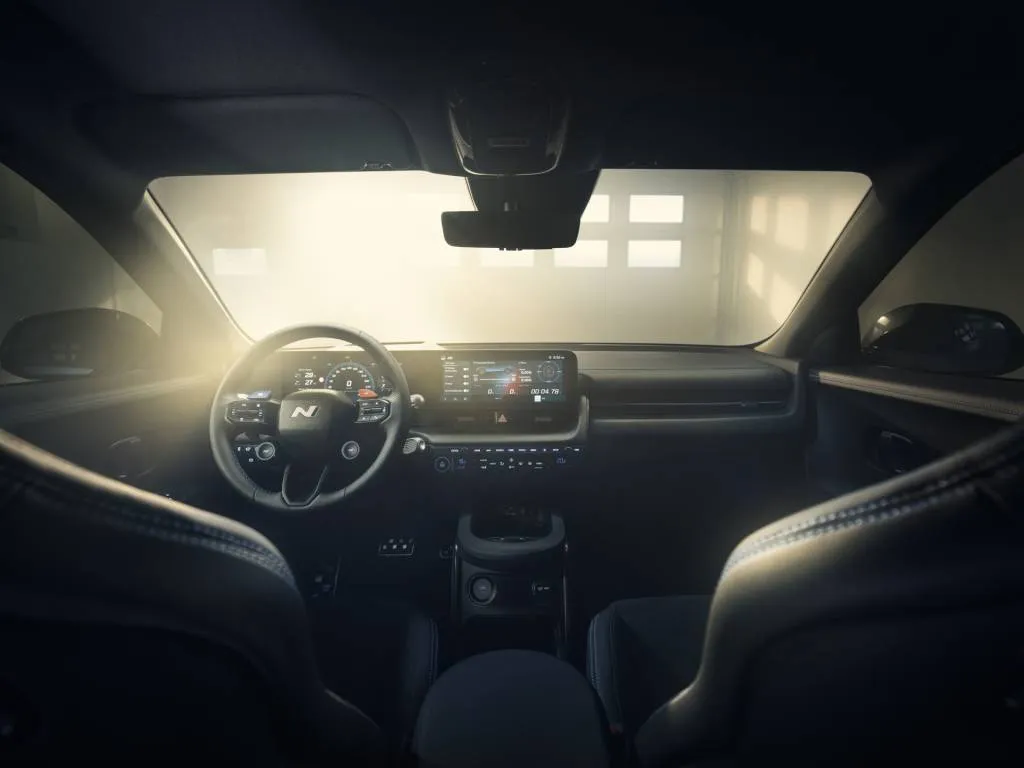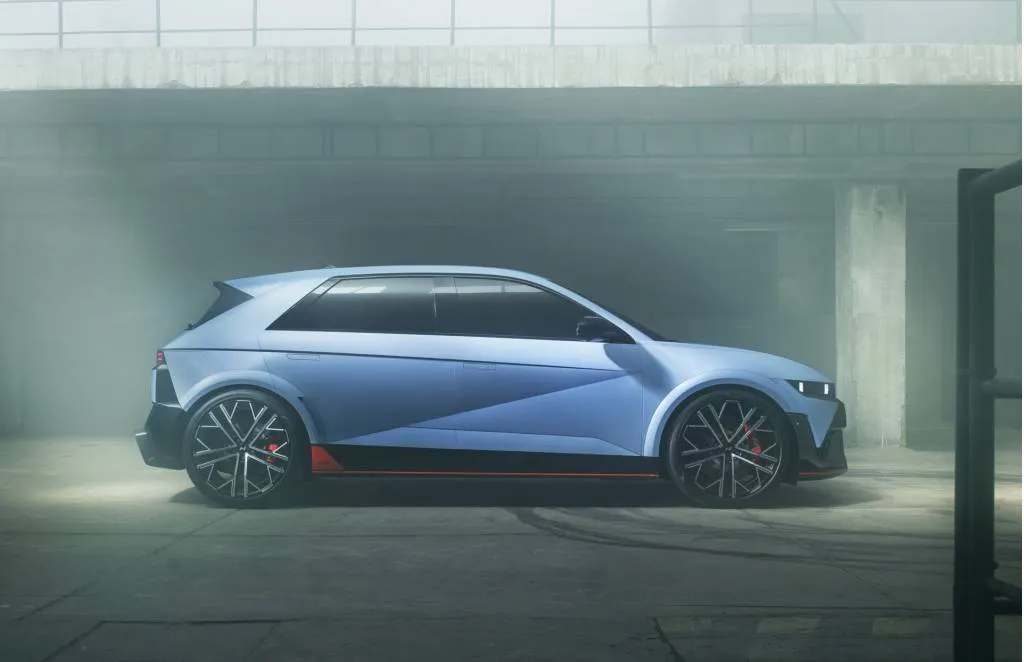The 2024 Hyundai Ioniq 5 N debuted Thursday at the 2023 Goodwood Festival of Speed as Hyundai’s first electric performance model, but one that tries to mimic internal-combustion cars.
This sportier version of the Ioniq 5 has more power, a bigger battery, a stiffer body, larger brakes, stiffer suspension, and some tech features aimed at enthusiastic driving.
A dual-motor all-wheel drive powertrain generates 600 hp and 546 lb-ft of torque continuously, and 641 hp and 568 lb-ft in 10-second bursts using the N Grin Boost function. Using launch control (which has three levels of adjustment), Hyundai says the Ioniq 5 N will do 0-60 mph in 3.4 seconds and reach a top speed of 162 mph. That’s despite a higher curb weight than the standard Ioniq 5.

Hyundai Ioniq 5 N
That acceleration is accompanied by simulated internal-combustion engine noises. N Active Sound+ uses eight interior and two exterior speakers to play three different sound themes, with sounds activated by throttle input. The Ignition theme replicates the 2.0-liter turbo-4 used in other Hyundai N models—including pops and bangs on the artificial overrun. Two other options provide more futuristic, non-ICE sounds, however.
The Ioniq 5 N also has an 84-kwh battery pack—bigger than other models’ 77.4-kwh pack. The pack also has additional cooling from the reshaped front bumper and a preconditioning system keyed to the different drive modes. In Drag mode, the temperature is set at 86-104 degrees Fahrenheit, but that lowers to 68-86 degrees for Track mode. An N Race mode optimizes the battery for track sessions, with Endurance and Sprint options for longer or shorter runs, respectively.
Hyundai also reinforced the body structure with 42 more welding points and 6.9 feet of additional bonding material. The motor and battery mounting points, front and rear subframes, and steering column were reinforced as well. A higher steering ratio with greater torque feedback was used as well, which could help cure the rather vague steering in standard Ioniq 5 N models.

Hyundai Ioniq 5 N
The Ioniq 5 N sits 0.8 inch lower than a standard Ioniq 5 and is 3.2 inches longer, thanks to a new front bumper and rear diffuser that’s joined by a rear wing. The fenders are 2.0 inches wider, accommodating a wider track width and 275/35 Pirelli P Zero performance tires on 21-inch wheels.
Hyundai gave the Ioniq 5 N robust brakes, with 15.7-inch rotors and 4-piston calipers up front and 14.2-inch rotors with single-piston calipers at the back, but it expects regenerative braking to provide 80-90% of deceleration on the road and 40-50% on the track. Regen can provide up to 0.6g of braking force, and recover up to 44% of powertrain energy on the track, according Hyundai. The brake and accelerator pedals can also be used at the same time.
A system called N Pedal also uses negative torque to put more weight on the front wheels to improve handling, while N Torque Distribution can adjust front-to-rear power delivery through 11 settings. An electronic limited-slip rear differential and N Drift Optimizer are included as well, the latter allowing this all-wheel drive EV to get sideways like a rear-wheel drive car.

Hyundai Ioniq 5 N
The Ioniq 5 N is expected to launch later this year, likely competing against the similarly sized Tesla Model Y Performance and the Kia EV6 GT, which shares the Ioniq 5’s E-GMP platform. Already on sale in the U.S., the EV6 GT is less powerful than the Ioniq 5 N, at 576 hp, and doesn’t have the Hyundai’s array of performance tech. We’ll see if the Ioniq 5 N can also improve on the Kia’s 206-mile EPA range rating.
Hyundai has also hinted that an Ioniq 6 N is on the way, although it’s not yet clear if that model will get all of these performance and interface improvements.

